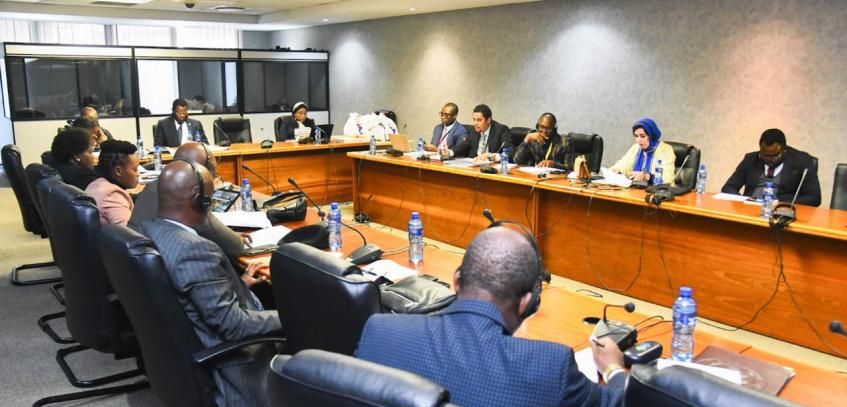Calls have been made against conflict and instability in the region, emphasizing the urgent need for peace. Advocates championed sustainable conflict resolution mechanisms to address underlying issues effectively.
This was shared in the report on the “Pan African Forum on Migration (PAFoM)-8 Conference on Bolstering Free Movement and Trade Nexus in AfCFTA: Optimizing Benefits of Migration, Labour Migration for Development,” which was presented and ultimately adopted by the Pan-African Parliament Committee on Trade, Customs, and Immigration.
The report was borne out of the Senior Officials Conference of the 8th Session of the Pan-African Forum on Migration, held from 31 October to 2 November 2023, under the theme ‘Bolstering Free Movement and Trade Nexus in AfCFTA: Optimizing Benefits of Migration, Labour Migration for Development,’ where members of this group participated.
The Pan-African Parliament was represented at the conference by Hon. John Bonds Bideri, Chairperson of the Committee on Trade, Customs, and Immigration Matters; Hon. Jean Patrice Quirin, Chairperson of the Committee on Health, Labour, and Social Affairs; and Hon. Behdja Lammali, Chairperson of the Committee on Transport, Industry, Communication, Energy, Science, and Technology.
“The rise of human trafficking is a significant regional challenge, posing a threat to migration governance and national security. It also raises concerns about human rights protection. To address instability and armed conflicts, the region must establish sustainable conflict resolution mechanisms in affected countries. Infrastructural challenges impede the free movement of people, goods, and services, and must be overcome to achieve the African Union's economic development vision and leverage the migration dividend.
“Institutional challenges in migration governance hinder the achievement of the African Union Free Movement Protocol (AU-FMP) and the African Continental Free Trade Area (AfCFTA). The institutional landscape of migration governance is becoming increasingly complex, making it crucial for institutions to be proactive and adaptable. Lastly, both Regional Economic Communities and Parliaments are currently not investing adequately in capacity development and focused training to effectively promote trade and economic development,” the report said.
For effective implementation of the continental migration governance agenda and integration among regional bodies, the report implored the vertical and horizontal alignment of policy frameworks and legislation.
It highlighted that vertical alignment is crucial for facilitating the domestication of the frameworks and legislation to ensure that national policies are in line with the continental agenda. On the other hand, horizontal alignment was touted for fostering collaboration and cooperation among regional bodies.
The report expressed concerns that “the slow readiness exhibited by parliaments in adopting, ratifying, and implementing the AU Protocol on Free Movement of Persons (AU-FMP) has ramifications for the actual and effective implementation of the African Continental Free Trade Area (AfCFTA)."
It continues: “This reluctance could be indicative of a lack of political will on the part of many African countries, which impedes progress in realising the benefits of free movement and trade within the continent.”








